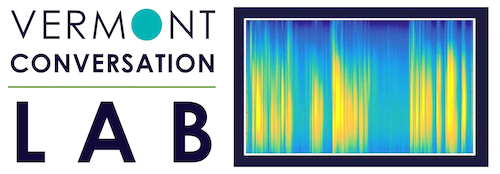We offer these resources freely for non-commercial purposes. Please reference the relevant citation when using these tools in your work
1) Conversational Dynamics (CODYM) Model
Description: CODYM is a Markov Model for studying patterns of information flow in conversations based on sequential dependencies in the lengths of speaker turns.
Github (source code): https://github.com/lclarfel/codym-analysis
Citation: Clarfeld L, Gramling R, Rizzo D, Eppstein M. A general model of conversational dynamics with application in serious illness communication. PLoS One. 2021. Jul 1;16(7):e0253124
2) “SOMtimeS” Algorithm
Description: SOMEtimeS is an unsupervised machine learning algorithm that uses dynamic time warping and self-organized maps to discover and intuitively display patterns among complex communication features that happen over the course of conversation.
SOMTimeS Python package: https://pypi.org/project/somtimes/
Github (source code): https://github.com/ali-javed/somtimes
Citation: Javed A, Rizzo D, Suk Lee B, Gramling R. SOMTimeS: Self Organizing Maps for Time Series Clustering and its Application to Serious Illness Conversations. (Pre-print https://arxiv.org/abs/2108.11523)
3) NLP Uncertainty Dictionary
Description: The Uncertainty Dictionary is a list of terms that naturally occur in clinical serious illness conversations indicating the presence and sub-types of uncertainty.
List of terms here: https://vermontconversationlab.com/uncertainty-corpus/)
Citation: Gramling R, Javed A, Durieux BN, Clarfeld LA, Matt JE, Rizzo DM, Wong A, Braddish T, Gramling CJ, Wills J, Arnoldy FL, Straton J, Cheney N, Eppstein MJ, Gramling D. Conversational Stories & Self Organizing Maps: Innovations for the Study of Uncertainty in Healthcare Communication. Patient, Education & Counseling. 2021. Nov;104(11):2616-2621.
4) NLP Temporal Reference Tagger
Description: The Temporal Reference Tagger uses conversational lexicon to distinguish when speakers are alluding to the past, present or future. (more description here)
Link to Python source code: https://vermontconversationlab.com/sdm_downloads/vcl-temporal-reference-tagger-code/
Citation: Ross L, Danforth C, Eppstein MJ, Clarfeld LA, Durieux BN, Gramling CJ, Hirsch L, Rizzo DM, Gramling R. Story Arcs in Serious Illness: Natural Language Processing Features of Palliative Care Conversations. Patient, Education and Counseling. 2020. April;103(4):826-832.
